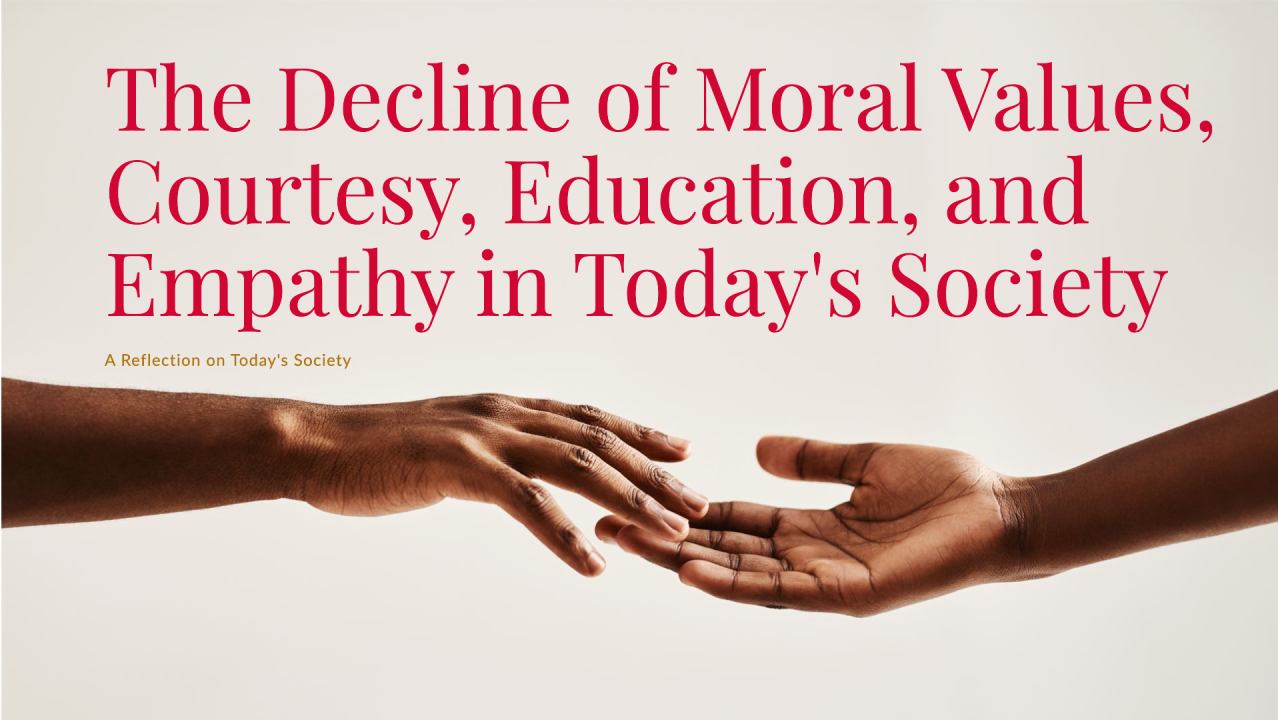Christian Life
What it means to be Born Again
To be born again is to undergo a radical transformation by the power of the Holy Spirit

What It Means to Be Born Again
Introduction
The concept of being “born again” holds a significant place in Christian theology and is frequently mentioned in the Bible. In fact, it is one of the most profound aspects of the Christian faith, influencing how believers view salvation, transformation, and the process of entering the Kingdom of God. Being “born again” is not merely a religious term, but a profound spiritual reality that marks a life-altering transformation through the power of the Holy Spirit. This essay explores what it truly means to be born again, the biblical foundation of the concept, its implications for the believer’s life, and how it shapes Christian living.
1. The Biblical Foundation of Being Born Again
The phrase “born again” is most famously found in the conversation between Jesus and Nicodemus in the Gospel of John. In John 3:3, Jesus declares, “Very truly I tell you, no one can see the kingdom of God unless they are born again.” The idea is further explained in verses 4-6, where Nicodemus, puzzled by the concept, asks how a person can be born again when they are old. Jesus responds, explaining that being born again is not a physical birth but a spiritual one: “No one can enter the kingdom of God unless they are born of water and the Spirit.”
This passage is foundational for understanding what it means to be born again. It is not simply about a change in behavior or outward actions, but a profound inner transformation that involves the work of the Holy Spirit. The “water” mentioned by Jesus likely refers to the cleansing that comes through repentance and baptism, while “the Spirit” refers to the regenerating work of the Holy Spirit in the believer’s heart.
2. The Spiritual Nature of Being Born Again
To be born again means to undergo a spiritual rebirth. It signifies the transformation of a person’s inner nature, moving from spiritual death to spiritual life. In Ephesians 2:1, Paul writes, “As for you, you were dead in your transgressions and sins.” Before being born again, a person is spiritually dead, separated from God by sin. However, when a person accepts Jesus Christ as their Lord and Savior, they experience a new birth that brings them into spiritual life. This new life is the result of the Holy Spirit’s work, which regenerates the believer and makes them a new creation.
This transformation involves the forgiveness of sins and the removal of the old sinful nature. As 2 Corinthians 5:17 states, “Therefore, if anyone is in Christ, the new creation has come: The old has gone, the new is here!” The believer is not merely reformed or improved; they are entirely transformed by the power of God. The old way of living, which was marked by selfishness, sin, and rebellion, is replaced by a new way of living, characterized by love, holiness, and obedience to God.
3. The Role of Repentance and Faith
Repentance and faith are critical components of being born again. Repentance involves turning away from sin and turning toward God. It is an acknowledgment of one’s sinful state and a willingness to forsake sin in order to live in accordance with God’s will. In Acts 3:19, Peter calls on the people to “repent, then, and turn to God, so that your sins may be wiped out, that times of refreshing may come from the Lord.” Repentance is essential because it aligns the individual with God’s plan for salvation and prepares the heart to receive the Holy Spirit.
Faith, on the other hand, is the means by which a person receives the new birth. Ephesians 2:8-9 tells us that “it is by grace you have been saved, through faith—and this is not from yourselves, it is the gift of God—not by works, so that no one can boast.” Faith in Jesus Christ, as the Son of God who died for our sins and rose again, is the key to salvation. When a person places their faith in Christ, they receive the gift of eternal life, and the Holy Spirit enters their heart, bringing about the new birth.
The process of being born again is therefore inseparable from both repentance and faith. Repentance opens the door for a new life, while faith in Jesus Christ is the key to receiving that new life.
4. The Work of the Holy Spirit in Regeneration
The work of the Holy Spirit is central to the experience of being born again. Jesus explains that “flesh gives birth to flesh, but the Spirit gives birth to spirit” (John 3:6). While physical birth results in a person’s earthly existence, spiritual birth comes only through the intervention of the Holy Spirit. It is the Holy Spirit who regenerates the believer’s heart, making them spiritually alive and giving them the power to live according to God’s will.
The Holy Spirit’s role in regeneration is described in Titus 3:5, which says, “He saved us, not because of righteous things we had done, but because of his mercy. He saved us through the washing of rebirth and renewal by the Holy Spirit.” The Holy Spirit cleanses the believer from sin, empowers them to live a holy life, and seals them as a child of God. This indwelling presence of the Holy Spirit is the mark of the new birth and the believer’s guarantee of eternal life.
5. The Evidence of Being Born Again
Being born again is not merely a theoretical concept; it has practical and observable effects on a person’s life. The evidence of the new birth is seen in a transformed life. Jesus teaches that a tree is known by its fruit (Matthew 7:16-20). Likewise, the true believer is known by the fruit of the Spirit, which includes love, joy, peace, forbearance, kindness, goodness, faithfulness, gentleness, and self-control (Galatians 5:22-23).
A person who is born again will demonstrate a change in their behavior, attitudes, and desires. They will begin to hate sin and pursue holiness. Their relationships will reflect the love of Christ, and they will seek to serve others rather than live selfishly. The new birth brings a desire for spiritual growth and a hunger for God’s Word. As 1 John 2:29 states, “If you know that he is righteous, you know that everyone who does what is right has been born of him.”
In addition to these outward signs, being born again also involves a deep, personal relationship with God. The believer can experience the presence of God through prayer, worship, and fellowship with other Christians. They become more attuned to God’s voice and direction in their lives, and they experience a peace that transcends understanding (Philippians 4:7).
6. The Importance of Baptism in the New Birth
Baptism plays a crucial role in the process of being born again, though it is not the means by which a person is saved. Baptism is an outward sign of the inward reality of spiritual rebirth. In Acts 2:38, Peter tells the crowd, “Repent and be baptized, every one of you, in the name of Jesus Christ for the forgiveness of your sins. And you will receive the gift of the Holy Spirit.” Baptism is an act of obedience that symbolizes the believer’s identification with Christ’s death, burial, and resurrection.
Romans 6:4 further explains that “we were therefore buried with him through baptism into death in order that, just as Christ was raised from the dead through the glory of the Father, we too may live a new life.” Baptism signifies the believer’s participation in the death of their old self and the resurrection to new life in Christ. It is a public declaration of the transformation that has already occurred through the Holy Spirit.
While baptism is important, it is not the means of salvation itself. As Jesus explains in John 3:5, being “born of water and the Spirit” is essential. Water represents purification, while the Spirit represents the regeneration that brings about the new birth. Baptism is an outward expression of the inward change brought about by the Holy Spirit.
7. The Eternal Impact of Being Born Again
The new birth has eternal significance. Jesus tells Nicodemus that being born again is necessary to “see the kingdom of God” (John 3:3). This refers to the believer’s entrance into the Kingdom of God, which is both a present spiritual reality and a future hope. In 1 Peter 1:3, Peter writes, “Praise be to the God and Father of our Lord Jesus Christ! In his great mercy he has given us new birth into a living hope through the resurrection of Jesus Christ from the dead.” The new birth gives believers access to eternal life and assures them of their inheritance in God’s Kingdom.
Furthermore, the new birth ensures that the believer will live in communion with God forever. In John 10:28-29, Jesus promises, “I give them eternal life, and they shall never perish; no one will snatch them out of my hand.” The new birth is not a temporary experience, but one that guarantees the believer’s eternal security in Christ.
Conclusion
To be born again is to undergo a radical transformation by the power of the Holy Spirit. It involves a spiritual rebirth that makes the believer a new creation in Christ, with the old nature replaced by a new one. The new birth is marked by repentance, faith in Jesus Christ, and the regenerating work of the Holy Spirit. It leads to a life of holiness, love, and service, and is evidenced by the fruit of the Spirit. Baptism serves as a public declaration of this inward change, but it is the Holy Spirit who brings about the new birth. Ultimately, being born again ensures the believer’s place in God’s Kingdom, with eternal life as its promise. This transformation is not just a theological concept but a living reality that shapes the believer’s entire life and eternity.
Christian Life
The Tragedy of Moral Decay in Higher Learning institutions
Explore the growing moral decay in higher learning institutions, its causes, consequences, and impact on academic integrity and societal values.

For years, universities, Colleges and other Higher learning institutions were seen as places of intellectual growth and character development. However, many higher learning institutions today have become breeding grounds for moral decadence, where students and even lecturers engage in behaviors that destroy both academic integrity and personal values. From unchecked sexual immorality to rampant substance abuse, violence, and corruption, the decay runs deep.
Sexual immorality is one of the biggest stains on campus life. What was once considered shameful has become normal, even celebrated. Fornication is common, with students engaging in casual relationships driven by lust rather than love. Many young women fall victim to deceitful love affairs, only to be left heartbroken and used.
The normalization of lesbianism and homosexuality has also taken root. Some students, influenced by peer pressure or curiosity, experiment with same-sex relationships, leading to moral confusion and identity crises. Others engage in secret affairs with older partners or even lecturers who manipulate them in exchange for better grades or
financial benefits. Adultery is rampant, with some married lecturers preying on students, turning the academic environment into a den of sexual corruption.
Academic dishonesty is another deep-seated issue. Hard work and diligence are now seen as outdated concepts, replaced by cheating, bribery, and leaked examination papers. Some students no longer feel the need to study, relying instead on corrupt lecturers who sell grades to the highest bidder. The value of education has been reduced to a mere transaction, and many graduates leave university without the knowledge or skills needed to succeed.
Campus life has also become synonymous with drug and alcohol abuse. The pursuit of pleasure has overtaken the pursuit of knowledge. Many students indulge in excessive drinking, turning nights into a blur of parties and reckless behavior. The use of drugs—marijuana, cocaine, and other harmful substances—has become widespread, with some students getting addicted and ruining their futures.
Smoking is no longer seen as a bad habit but as a sign of independence and “maturity.” Shisha lounges and secret drug dens operate freely, drawing in young people who waste their lives in addiction. Many students skip classes, spending their time in bars and drug joints rather than in lecture halls.
As morality declines, violence increases. The lack of self-control and discipline among students has led to tragic incidents of stabbings and deadly fights. Many of these cases stem from toxic love triangles, where jealousy and betrayal push students to take extreme actions.
Reports of students stabbing each other to death over relationships have become disturbingly common.
A boyfriend catches his girlfriend texting another man and, in a fit of rage, pulls out a knife. A girl, blinded by jealousy, attacks a fellow student over suspicions of an affair. Such incidents reveal the deep emotional instability and lack of moral guidance among students, leading to irreversible consequences.
Campus hostels, once meant to be safe spaces for students, have become crime scenes where love-fueled violence erupts. Arguments escalate into fistfights, and fistfights turn into stabbings. Instead of resolving conflicts through dialogue, students resort to deadly force, ending promising lives before they even begin. The inability to manage emotions, coupled with the influence of drugs and alcohol, has made universities hotbeds of violence.
With all these vices comes an inevitable consequence: depression and hopelessness. Many students, trapped in toxic relationships, addiction, and academic failure, fall into deep despair. The pressure to fit into this morally decayed society leaves many feeling empty and worthless.
Christian Life
Nakuru and its Famous Prophet Dr. Owuor

The people of Nakuru love Prophet Dr. David Owuor very much. In the just concluded meeting in NAKURU they didn’t shun to openly confess it.
The business community at large confessed that business flourish most in the presence of the Prophet in the city, owing to the large influx of millions.

Interestingly, the business community gather together in masses at Merica Hotel every morning when the prophet is in the city. Then the prophet comes preaches to them a bit and blesses them.
The next day they will still come again, they feel that the Prophet replenishes their hearts every day.
As the super brilliant and magnificent chariot-like convoy of the prophet heads to the grounds of the healing service or conference, the Bodaboda people in the city escort the elegant convoy of the prophet. It’s a situation full of color and circumstance.
The Prophet preserves acres of lands deliberately near His meetings for the hustlers and all business people to help them take advantage of the millions upon millions. The Prophet further supplies the business people with water and other amenities they need to flourish their business.
When he was leaving Nakuru last Saturday, the business people and the city community gathered in largest numbers at Merica Hotel Kenyatta avenue to Bid Him goodbye. They confessed that they felt sorrowful that he was leaving because they love him very much. The Prophet blessed their families, business, health, new year and encouraged them to love Jesus and live in holiness.
When the Magnificent convoy of the Prophet had left, many people criss-crossed the streets through a short cut to bid the prophet goodbye for a second time.
Had it been possible they would have followed the meteoric Convoy of the prophet; they say that they see the JESUS in the prophet.
The leaders of the county government of Nakuru also thanked the prophet for helping flourish the economy of Nakuru.
Video courtesy; A viral video of a phenomenal in Nakuru, as the City community, business people, hustlers, the rich, all together with believers lined up all the way towards the foot Bridge Celebrating, joyous and bidding goodbye to the wonder inspiring magnificent Convoy of prophet Dr. David Owuor Leaving Nakuru last Saturday.
They requested that the Prophet be coming many times to Nakuru as possible. The Matatu operators also say the same.
Christian Life
What is the Meaning of Christianity?
Christianity is founded on the life, teachings, death, and resurrection of Jesus Christ

Christianity is one of the world’s largest and most influential religions, with over two billion followers worldwide. Rooted in the teachings of Jesus Christ, Christianity is a faith that emphasizes love, grace, redemption, and a personal relationship with God. It has shaped cultures, philosophies, and civilizations for over two thousand years. But what exactly is Christianity, and what does it mean to be a Christian? This article explores the core beliefs, practices, and significance of Christianity in the lives of believers and society.
The Foundations of Christianity
Christianity is founded on the life, teachings, death, and resurrection of Jesus Christ. The name “Christianity” comes from “Christ,” which means “the Anointed One” in Greek. Christians believe that Jesus is the Son of God and the promised Messiah prophesied in the Old Testament. The core foundation of Christianity is rooted in the Bible, which consists of the Old and New Testaments, serving as the authoritative scripture for faith and practice.
God and the Trinity
One of Christianity’s central doctrines is the belief in one God who exists in three persons: God the Father, God the Son (Jesus Christ), and God the Holy Spirit. This doctrine, known as the Trinity, affirms that God is one in essence yet distinct in personhood. The Trinity is a profound mystery that underscores the complexity and unity of God’s nature.
Jesus Christ: The Savior
At the heart of Christianity is Jesus Christ, whom Christians believe to be both fully divine and fully human. Jesus lived a sinless life, performed miracles, and preached about the Kingdom of God. His teachings emphasized love, forgiveness, humility, and the importance of faith in God. His crucifixion is seen as the ultimate sacrifice for humanity’s sins, and His resurrection is the cornerstone of Christian faith, signifying victory over sin and death.
Salvation and Grace
Christianity teaches that salvation is a gift from God and cannot be earned through good deeds alone. Instead, it is granted through faith in Jesus Christ. According to Ephesians 2:8-9, “For it is by grace you have been saved, through faith—and this is not from yourselves, it is the gift of God—not by works, so that no one can boast.” This concept of grace underscores the unconditional love and mercy of God toward humanity.
The Bible: The Word of God
The Bible is regarded as the inspired and authoritative Word of God. It is divided into two main sections:
- The Old Testament, which includes the creation story, the history of Israel, prophecies, and wisdom literature.
- The New Testament, which focuses on the life and teachings of Jesus, the acts of His apostles, and letters to early Christian communities.
The Bible serves as a guide for moral living, spiritual growth, and understanding God’s will. Christians rely on scripture for wisdom, encouragement, and direction in their daily lives.
The Purpose of Christianity
Christianity provides meaning and purpose by answering fundamental questions about existence, morality, and the afterlife. It teaches that humans are created in God’s image, endowed with intrinsic value and purpose. The primary goal of a Christian life is to glorify God, cultivate a relationship with Him, and follow Christ’s teachings.
Love and Compassion
Christianity emphasizes love as the greatest commandment. In Matthew 22:37-39, Jesus declares, “Love the Lord your God with all your heart and with all your soul and with all your mind. This is the first and greatest commandment. And the second is like it: Love your neighbor as yourself.” Love, kindness, and compassion are central to Christian living.
Spiritual Transformation
Becoming a Christian is not just about following a set of rules but undergoing a transformation of the heart and mind. Christians believe in being “born again” (John 3:3), signifying a spiritual rebirth through faith in Christ. This transformation leads to a life of righteousness, humility, and a commitment to doing God’s will.
Christian Practices and Traditions
Christianity is expressed through various practices, rituals, and traditions that strengthen faith and foster community.
Prayer and Worship
Prayer is a fundamental aspect of Christian life. It is a way to communicate with God, seek guidance, express gratitude, and intercede for others. Worship, both personal and communal, is an essential practice, with churches serving as places for praise, teaching, and fellowship.
Sacraments and Ordinances
Many Christian denominations observe sacraments or ordinances that symbolize and affirm faith. The two most widely recognized are:
- Baptism: A public declaration of faith and identification with Christ’s death, burial, and resurrection.
- Holy Communion (Eucharist): A remembrance of Jesus’ sacrifice, commemorating His body and blood through bread and wine.
Fellowship and Church Community
Christianity is not meant to be practiced in isolation. Believers gather in churches to encourage one another, worship together, and study the Bible. The church serves as a spiritual family, providing support, accountability, and opportunities for service.
Christianity’s Influence on Society
Christianity has profoundly impacted history, culture, and ethics. It has inspired humanitarian efforts, education, art, and governance.
Moral and Ethical Teachings
Christian ethics have shaped societal values, emphasizing justice, honesty, charity, and the dignity of human life. Many legal systems are influenced by Christian principles of morality and justice.
Charity and Humanitarian Work
Christianity promotes caring for the less fortunate. Many hospitals, schools, and relief organizations have Christian roots. Christians engage in missionary work, disaster relief, and social justice initiatives worldwide.
Christianity and the Afterlife
Christians believe in eternal life and the promise of heaven. According to John 14:2-3, Jesus assures His followers: “My Father’s house has many rooms… I am going there to prepare a place for you.” The hope of eternal life gives meaning to human existence and encourages believers to live with purpose and integrity.
Challenges and Misconceptions About Christianity
Despite its profound influence, Christianity is often misunderstood or misrepresented. Some common challenges include:
- Misinterpretations of Doctrine: Different denominations have varying theological interpretations, sometimes leading to confusion.
- Criticism of Hypocrisy: While Christianity teaches love and righteousness, some critics highlight instances of moral failure among self-professed Christians.
- Secularism and Atheism: In a rapidly secularizing world, Christianity faces challenges from skepticism and scientific materialism.
Conclusion
Christianity is more than just a religion; it is a way of life centered on faith, love, and a relationship with God through Jesus Christ. It provides answers to life’s deepest questions, offers hope and purpose, and calls believers to live out their faith through love, service, and spiritual transformation. Whether through prayer, worship, or acts of kindness, Christianity remains a guiding force for millions, shaping both individual lives and entire civilizations.
-

 End Times Updates10 months ago
End Times Updates10 months agoProphet Dr. Owuor Awakens Brazil: A Call to Holiness to the Contemporary Church.
-

 Bible11 months ago
Bible11 months agoIsrael War With Iran Significance
-

 End Times Updates10 months ago
End Times Updates10 months agoThe Book of Revelation: A Chapter-by-Chapter Breakdown
-

 Bible11 months ago
Bible11 months agoIsrael Releases Palestinian Prisoners in Hostage Exchange
-

 Jesus10 months ago
Jesus10 months agoRaising Children Together: A Biblical Approach to Parenting in Marriage
-

 Church History10 months ago
Church History10 months agoBiblical Principles for Dealing with Conflict
-

 Bible11 months ago
Bible11 months agoDo Israelites Use the Bible?
-

 Jesus11 months ago
Jesus11 months agoThe Power of Prayer in Strengthening Your Marriage





